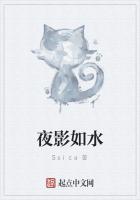The eagerness with which he amassed wealth, was repulsive to Jane; he did not spare his per-son or beasts in its pursuit. She felt that to such a man she should be considered an incum-brance; she doubted if he would desire her, if he did not know she would bring a handsome patrimony. Her mother, full in favor with the parents of Henry, commanded her to accept him. She engaged herself, yielding to her mother's wishes, because she had not strength to oppose them; and sometimes, when witness of her mother's and Mary's tyranny, she felt any change would be preferable, even such a one as this. She knew her husband should be the man of her own selecting, one she was conscious of preferring before all others. She could not say this of Henry.
In this dilemma, a visitor came to Aunt Abby's; one of her boy-favorites, George Means, from an adjoining State. Sensible, plain looking, agreeable, talented, he could not long be a stranger to any one who wished to know him.
Jane was accustomed to sit much with Aunt Abby always; her presence now seemed neces-sary to assist in entertaining this youthful friend.
Jane was more pleased with him each day, and silently wished Henry possessed more refinement, and the polished manners of George. She felt dissatisfied with her relation to him. His calls while George was there, brought their opposing qualities vividly before her, and she found it disagreeable to force herself into those atten-tions belonging to him. She received him ap-parently only as a neighbor.
George returned home, and Jane endeavored to stifle the risings of dissatisfaction, and had nearly succeeded, when a letter came which needed but one glance to assure her of its birth-place; and she retired for its perusal. Well was it for her that her mother's suspicion was not aroused, or her curiosity startled to inquire who it came from. After reading it, she glided into Aunt Abby's, and placed it in her hands, who was no stranger to Jane's trials.
George could not rest after his return, he wrote, until he had communicated to Jane the emotions her presence awakened, and his desire to love and possess her as his own. He begged to know if his affections were reciprocated, or could be; if she would permit him to write to her; if she was free from all obligation to another.
"What would mother say?" queried Jane, as she received the letter from her aunt.
"Not much to comfort you."
"Now, aunt, George is just such a man as I could really love, I think, from all I have seen of him; you know I never could say that of Henry"--
"Then don't marry him," interrupted Aunt Abby.
"Mother will make me."
"Your father won't."
"Well, aunt, what can I do? Would you answer the letter, or not?"
"Yes, answer it. Tell him your situation."
"I shall not tell him all my feelings."
Jane answered that she had enjoyed his com-pany much; she had seen nothing offensive in his manner or appearance; that she was under no obligations which forbade her receiving let-ters from him as a friend and acquaintance.
George was puzzled by the reply. He wrote to Aunt Abby, and from her learned all. He could not see Jane thus sacrificed, without mak-ing an effort to rescue her. Another visit fol-lowed. George heard Jane say she preferred HIM. He then conferred with Henry at his home. It was not a pleasant subject to talk upon. To be thus supplanted, was not to be thought of. He would sacrifice everything but his inheritance to secure his betrothed.
"And so you are the cause of her late cold-ness towards me. Leave! I will talk no more about it; the business is settled between us; there it will remain," said Henry.
"Have you no wish to know the real state of Jane's affections towards you?" asked George.
"No! Go, I say! go!" and Henry opened the door for him to pass out.
He retired to Aunt Abby's. Henry soon fol-lowed, and presented his cause to Mrs. Bellmont.
Provoked, surprised, indignant, she summoned Jane to her presence, and after a lengthy tirade upon Nab, and her satanic influence, told her she could not break the bonds which held her to Henry; she should not. George Means was rightly named; he was, truly, mean enough; she knew his family of old; his father had four wives, and five times as many children.
"Go to your room, Miss Jane," she continued.
"Don't let me know of your being in Nab's for one while."
The storm was now visible to all beholders.
Mr. Bellmont sought Jane. She told him her ob-jections to Henry; showed him George's letter; told her answer, the occasion of his visit. He bade her not make herself sick; he would see that she was not compelled to violate her free choice in so important a transaction. He then sought the two young men; told them he could not as a father see his child compelled to an un-congenial union; a free, voluntary choice was of such importance to one of her health. She must be left free to her own choice.
Jane sent Henry a letter of dismission; he her one of a legal bearing, in which he balanced his disappointment by a few hundreds.
To brave her mother's fury, nearly overcame her, but the consolation of a kind father and aunt cheered her on. After a suitable interval she was married to George, and removed to his home in Vermont. Thus another light disap-peared from Nig's horizon. Another was soon to follow. Jack was anxious to try his skill in pro-viding for his own support; so a situation as clerk in a store was procured in a Western city, and six months after Jane's departure, was Nig abandoned to the tender mercies of Mary and her mother. As if to remove the last vestige of earthly joy, Mrs. Bellmont sold the companion and pet of Frado, the dog Fido.














